- Back to Home »
- Has your sympathy run out?
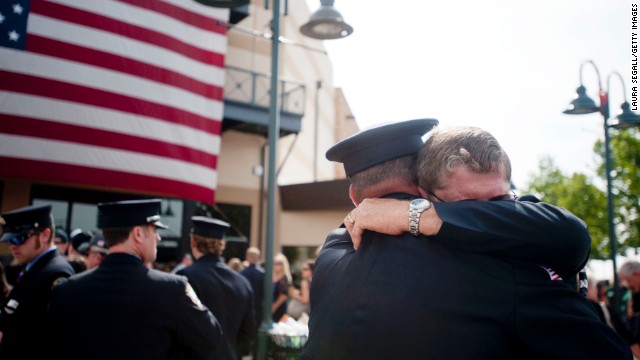 Chaplain Bob Ossler, right, hugs people at a Prescott Valley, Arizona, memorial service on Tuesday, July 9, honoring the fallen firefighters of the Yarnell Hill Fire. Nineteen members of the Granite Mountain Hotshots died Sunday, June 30, battling the wildfire.
Chaplain Bob Ossler, right, hugs people at a Prescott Valley, Arizona, memorial service on Tuesday, July 9, honoring the fallen firefighters of the Yarnell Hill Fire. Nineteen members of the Granite Mountain Hotshots died Sunday, June 30, battling the wildfire. 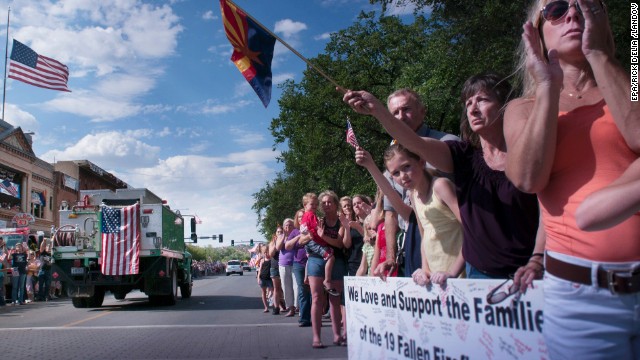 Citizens of Prescott, Arizona, welcome home the bodies of the 19 firefighters on Sunday, June 7.
Citizens of Prescott, Arizona, welcome home the bodies of the 19 firefighters on Sunday, June 7. 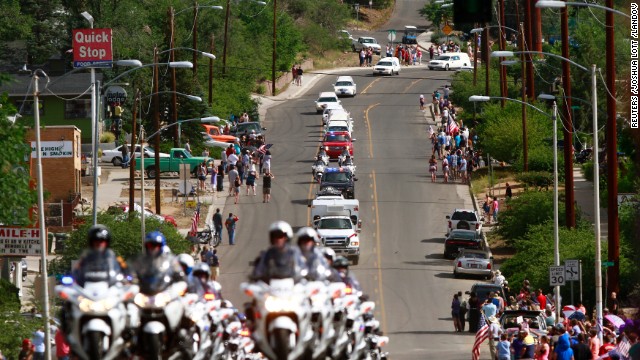 Nineteen white hearses carried the remains of the firefighters on July 7. They were accompanied by police motorcycle outriders on a final journey passing through the crew's hometown.
Nineteen white hearses carried the remains of the firefighters on July 7. They were accompanied by police motorcycle outriders on a final journey passing through the crew's hometown. 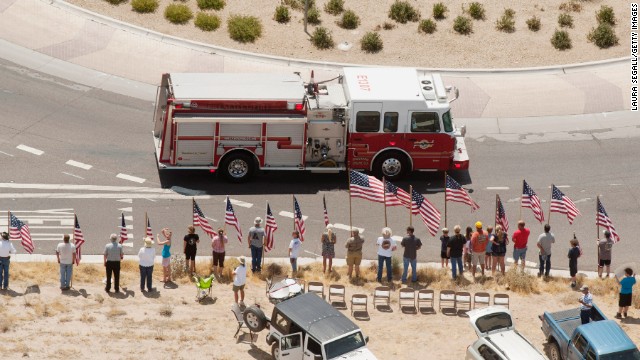 A fire truck travels as part of the procession under escort by the Joint Arizona Honor Guard.
A fire truck travels as part of the procession under escort by the Joint Arizona Honor Guard.  An aerial view shows the procession on the 100-mile trip from the Medical Examiner's office in Phoenix to the firefighters' home base in Prescott on July 7.
An aerial view shows the procession on the 100-mile trip from the Medical Examiner's office in Phoenix to the firefighters' home base in Prescott on July 7. 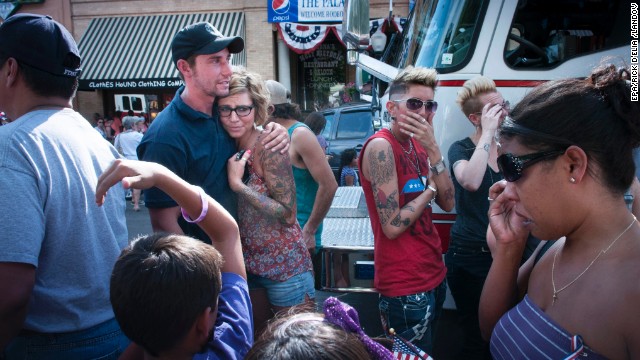 Mourners grieve as they welcome home the procession. The firefighters died after deploying emergency shelters as the fast-moving forest fire suddenly changed direction on June 30.
Mourners grieve as they welcome home the procession. The firefighters died after deploying emergency shelters as the fast-moving forest fire suddenly changed direction on June 30. 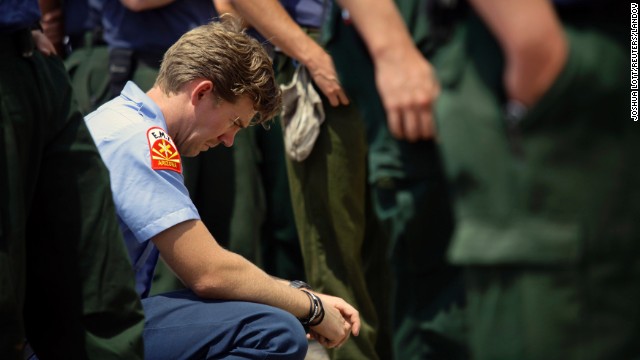 Firefighter Sean Kauffman pays his respects at a makeshift memorial outside the Granite Mountain Interagency Hotshot Crew fire station in Prescott, Arizona, on Thursday, July 4. Kauffman is a former member of the elite firefighting crew.
Firefighter Sean Kauffman pays his respects at a makeshift memorial outside the Granite Mountain Interagency Hotshot Crew fire station in Prescott, Arizona, on Thursday, July 4. Kauffman is a former member of the elite firefighting crew. 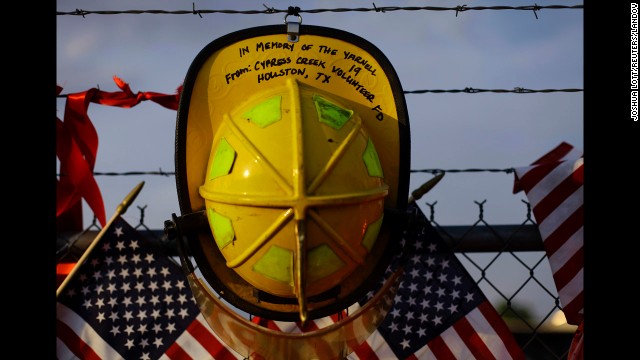 A firefighter's helmet from a Texas volunteer department hangs on a fence at a makeshift memorial to the fallen Granite Mountain Hotshots in Prescott on July 4.
A firefighter's helmet from a Texas volunteer department hangs on a fence at a makeshift memorial to the fallen Granite Mountain Hotshots in Prescott on July 4. 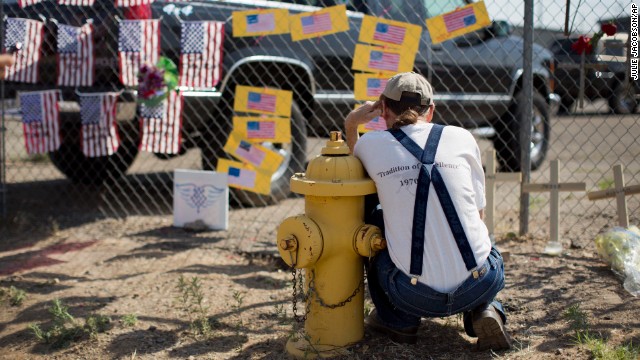 Stephen Grady reads some of the notes left at the Granite Mountain Interagency Hotshot Crew fire station in Prescott on Tuesday, July 2.
Stephen Grady reads some of the notes left at the Granite Mountain Interagency Hotshot Crew fire station in Prescott on Tuesday, July 2. 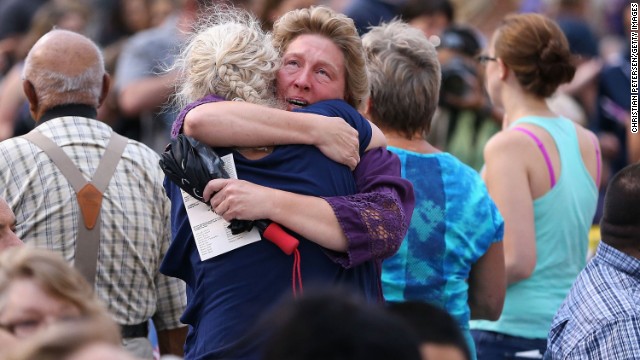 Family members of victims hug as they arrive at a vigil at Prescott High School on July 2. The elite team members' deaths on Sunday, June 30, marked the deadliest day for U.S. firefighters since the 9/11 attacks.
Family members of victims hug as they arrive at a vigil at Prescott High School on July 2. The elite team members' deaths on Sunday, June 30, marked the deadliest day for U.S. firefighters since the 9/11 attacks. 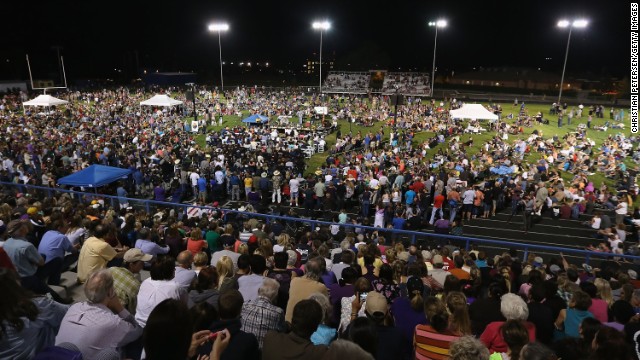 People attend a candlelight vigil at Prescott High School on July 2.
People attend a candlelight vigil at Prescott High School on July 2. 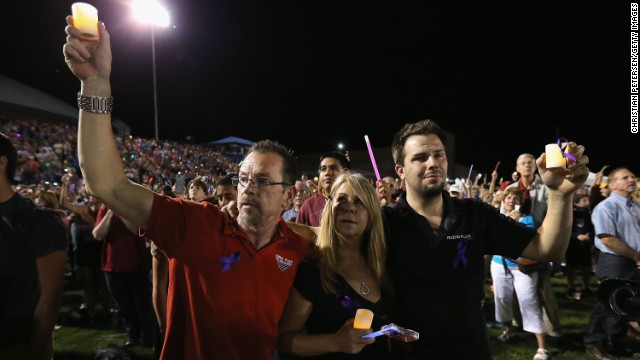 People hold up lights and candles on July 2.
People hold up lights and candles on July 2. 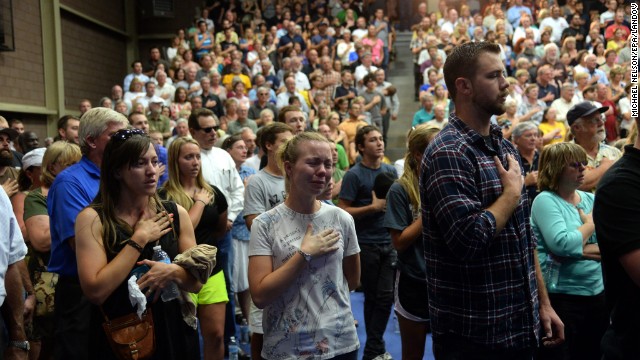 People gather at a memorial service for the firefighters at Embry-Riddle Aeronautical University in Prescott on Monday, July 1.
People gather at a memorial service for the firefighters at Embry-Riddle Aeronautical University in Prescott on Monday, July 1. 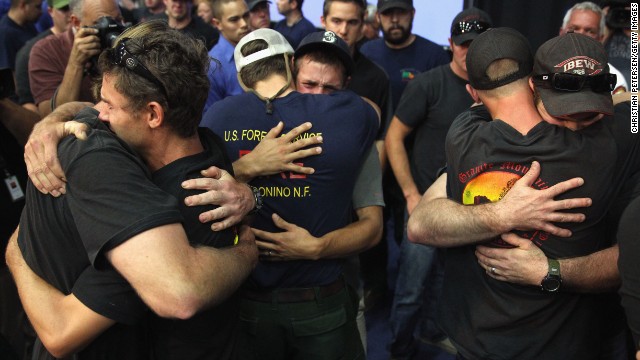 Local firefighters embrace on July 1 at a memorial service in Prescott.
Local firefighters embrace on July 1 at a memorial service in Prescott. 
1

2

3

4

5

6

7

8

9

10

11

12

13

14
- The 19 brave firefighters who died in an Arizona blaze may fade soon from memory
- Marsh: How can we ensure that we don't quickly forget them or victims of plane crash
- He says the lasting impact of a tragedy affects constructive steps in its wake
- Marsh: Social science suggests that an emotional connection to victim matters a lot
Editor's note: Jason Marsh is the founding editor-in-chief of the online magazine Greater Good, published by the Greater Good Science Center, which focuses on the "science of a meaningful life" and is based at the University of California at Berkeley.
(CNN) -- Last week our nation turned with grief to Prescott, Arizona, where 19 members of an elite firefighting squad perished in a raging wildfire. The media coverage of the tragedy has highlighted the dedication the men had to their work, to each other and to the families they left behind.
What makes all of this coverage especially poignant is that, as early as this week, the names and heroic stories of these men might disappear from the headlines and fade from the public's memory.
For one thing, there are new tragedies: The plane crash in San Francisco that killed two people and injured countless others, the air taxi crash in Alaska that killed 10 passengers and the horrific train derailment and explosion in Canada.
While these new accidents joust for our attention, how can we ensure that the memories of the firefighters, or the victims of the crashes, remain salient in our minds?

It's a question with important real-world implications. After all, it is the lasting psychological impact of a tragedy that often determines whether the public will take positive, constructive steps in its wake, like donating money to support the victims' families or pressuring officials to determine what went wrong, in order to prevent another tragedy like it.
While we don't have all the answers, psychological research has started to identify how stories like those of Prescott's Granite Mountain Hotshots can inspire appropriate action and not just become forgotten.
Feeling an emotional connection to a victim matters -- a lot. Studies suggest that feeling an emotional connection to one person does far more to stoke compassion than the cool rationality of numbers and statistics.
In one eye-opening experiment, for instance, researchers Deborah A. Small, George Loewenstein and Paul Slovic found that people who read the story of a single, starving African girl donated more to an anti-hunger charity than did people who read an appeal featuring statistics on starvation in Africa.
What's even more astounding: The people who read the story didn't only donate more than the people who read the statistics; they also donated more than the people confronted with the statistics combined with the girl's story.
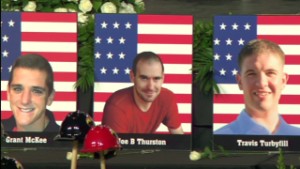 Arizona firefighters remembered
Arizona firefighters remembered 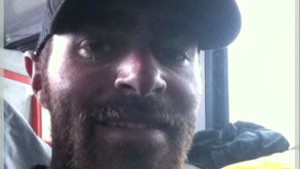 Family mourns fallen firefighter
Family mourns fallen firefighter 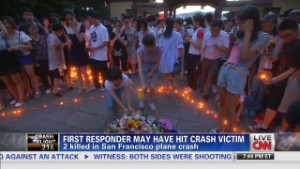 Plane crash victim may have been run over
Plane crash victim may have been run over This suggests not only that an individual's story matters more than impressive statistics but that numbers actually stunt our compassionate instincts, perhaps because they make us feel overwhelmed and hinder our ability to identify with another human being.
Moreover, it's easier to foster an emotional connection to a single person in need than to a group, even a small group. A study by Israeli researchers found that people donated more money to help a single sick child than to a group of eight sick kids, even though the single kid and the eight kids were all identified in the same way, with their name, age and photo.
News reports emphasizing the high number of casualties among the Granite Mountain Hotshots, such as by pointing out that these 19 lives are the most any fire department in the United States has lost on a single day since September 11, might actually be making their story stick less in the public's consciousness. Instead of trying to weave personal details about several of the fallen firefighters into a single story, news reports might be more effective if they focus on just one of the men at a time, including his photo and meaningful personal details.
We're also more likely to care about a victim when we recognize something specific that we have in common with that person. Studies have found that people are more likely to demonstrate kindness and generosity toward others of the same race or ethnicity, as well as toward people who share their taste in art, root for their favorite sports team or have the same birthday.
This hit close to home when I first read about the Granite Mountain Hotshots. When I saw the name of the team's supervisor, Eric Marsh, who died in the fire, I could feel my interest in the story perk up, and I'll admit that I found myself scanning the rest of the article for a photo or more details about Marsh, solely because we shared the same last name. I knew we weren't related, but that simple connection deepened my personal investment in the tragedy.
The lesson here seems clear: The more that stories reveal specific details about a victim, the greater the chance that they'll help us see ourselves in that person and elicit our compassion.
Finally, images also seem to be critical. In that Israeli study, when people were given the chance to help either an anonymous sick child or a sick child identified by her name and age, the donation amounts hardly differed. But when a photo was added to the sick child's profile, donations for her medical care shot up dramatically.
In this light, releasing photos of the Granite Mountain Hotshots might help their story resonate with the public. But as we've seen many times in the past, particularly with September 11 and Hurricane Katrina, stories often strike the deepest chord when they feature both photos of the victims and images of the tragedy that overtook them.
None of this is exact science. The place of the Granite Mountain Hotshots, and others like the plane crash victims, in our hearts and minds will depend on a host of factors, including whether they're overshadowed by subsequent domestic and international events.
While these tragedies are still in our thoughts, perhaps the lessons from science can help us honor the victims with compassion and respect, and, in the process, prevent similar tragedies in the future.
Follow us on Twitter @CNNOpinion.
Join us on Facebook/CNNOpinion.
The opinions expressed in this commentary are solely those of Jason Marsh.







